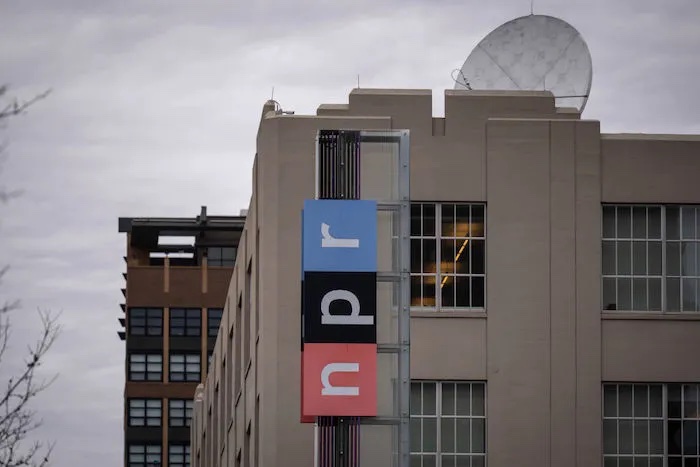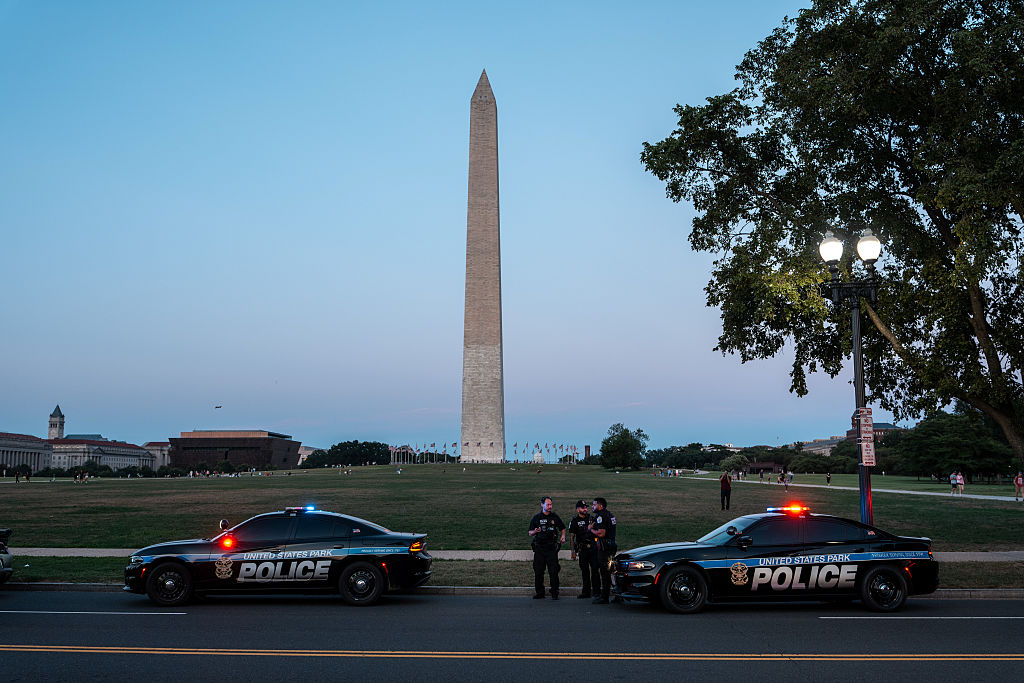The smug world of public radio in the United States received a smart slap in the face earlier this month. It was delivered by Uri Berliner, a long-time NPR reporter, who went public with his inside story of how NPR cooks the news. NPR responded by suspending him and then securing his resignation. As this unfolded, NPR’s recently appointed president, Katherine Maher, faced ridicule for her own past statements.
National Public Radio, NPR, is a cousin (or perhaps a grandchild) of the BBC. It was created in 1970, just shy of fifty years after the Beeb started sending its signals into the stratosphere. By the late 1970s, it had established itself as a staple of the college-educated American middle class, with its afternoon news program, All Things Considered, and its wake-up program, Morning Edition. NPR became known for an “NPR voice.” It is an empathy-saturated hush with floral accents.
This month, Uri Berliner, a long-time NPR reporter and business editor, did the unthinkable: he published an essay airing his dissatisfaction with NPR’s handling of the news. Berliner was not a mouse in some NPR corner. He had gathered broadcast journalist awards by the bucket, and he was one of the easily recognized “authorities” that NPR drew on week-in-and-week-out. So his remonstrance was not something that could be overlooked.
Just what terrible things did he say? Actually he said nothing that the American public did not already know: that NPR in the last eight years has gone crazy left, and for that reason has been abandoned by a large portion of its former audience. Berliner dates NPR’s descent into madness to the 2016 presidential election. The arrival of Donald Trump in the White House broke the spirit of NPR’s trust in the universe. NPR had supposed that, with incidental exceptions, progressive ideals would be triumphant. Historical inevitability was on the side of Hillary — and all the good things Democrat activists recognize as right and proper.
The election of Donald meant that the forces of darkness had been let loose, and NPR was suddenly forced to put aside the niceties of (more or less) honest reporting. Berliner parcels his words carefully: “2016 was greeted at NPR with a mixture of disbelief, anger, and despair. (Just to note, I eagerly voted against Trump twice but felt we were obliged to cover him fairly.)” But we get the point. NPR went all in with its support for the Hillary-driven fabrication that Trump has colluded with Russia in the 2016 election. NPR came to rely uncritically on California’s Democratic senatorial candidate Adam Schiff. When Schiff ultimately washed up with nothing, NPR simply changed the subject.
Berliner detailed a litany of similar offenses where NPR reported emphatically stories that were mere figments. The Mueller report was hyped until it turned out to declare Trump innocent. The Hunter Biden laptop was “Soviet disinformation” according to friends of Biden, and that was good enough for NPR. Covid came from the wet market in Wuhan, and those who suggested it might have escaped from a lab were ill-informed, irresponsible and bigoted. By his own account Berliner complained about these sorts of journalistic malpractice. When he spoke up in staff meetings, he was treated kindly, and then ignored — the kindly uncle possessed of cranky opinions.
Berliner’s parade of NPR horribles is limited to the few that roused his indignation. He ignores the many that probably rest easy with his own politics. He gives only passing mention of the wallpaper of ideological conformity.
I first heard NPR in 1978, as a graduate student at the University of Rochester. For the next twenty years I was as reliable listener as if I had its FM frequency in a lobe of my brain. I recognized the liberal bias, but it was a stimulating irritant — cayenne pepper — in the coverage of events. Compared to commercial networks, NPR really was a sophisticated and intelligent alternative. But at some point the ration of stimulating pepper to irksome spin became too much for me. I would still occasionally tune in, but it became a game of waiting to see how long it would take before for I heard the first bit of political deceit. Year by year the intervals decreased. These days there are often next to no gaps at all. Straight news has been banished from NPR and replaced with “narrative.” And the narrative is no longer even thinly disguised as objective reporting. It is the distilled essence of wokery.
The great reward of following this trail is that it leads to Katherine Maher. Here she is in a video explaining why she rejects the ethos of “free and open” sharing of information on the internet: “I have come to the opinion and the perspective that ‘free and open’ was a way of looking at the world that was inherently limited relative to what we were trying to achieve. ‘Free and open’ has the best of intentionality but in the end what ‘free and open’ often ended up being, particularly in the case of Wikipedia, was recapitulating many of the same power structures and dynamics that exist off-line prior to the advent of the internet.”
She goes on to warn that “the ways to ascribe notability often really comes from some of those white male westernized constructs around who matters in society.”
You do not learn to talk like this by hanging out with regular folks at the coffee shop or the bowling alley. Katherine grew up in Connecticut, but for college went to the American University in Cairo where she studied at the Arabic Language Institute’s Arabic language intensive program. She also studied at the Institut français d’études arabes de Damas in Syria. Somewhere along her educational journey she became fluent in the globalist, anti-western, feminist gabblefarb of the post-modern international elite. This means that she is utterly tone-deaf to American culture and to ordinary American standards of right and wrong. Which makes her a perfect pitch with today’s hyper-insular NPR.
Conservative commentators are feasting on her résumé, and reveling in her public statements replete with every leftist cliché currently in circulation. If anyone can bring NPR to its well-earned grave, it is her.
This article was originally published on The Spectator’s UK website.


























Leave a Reply